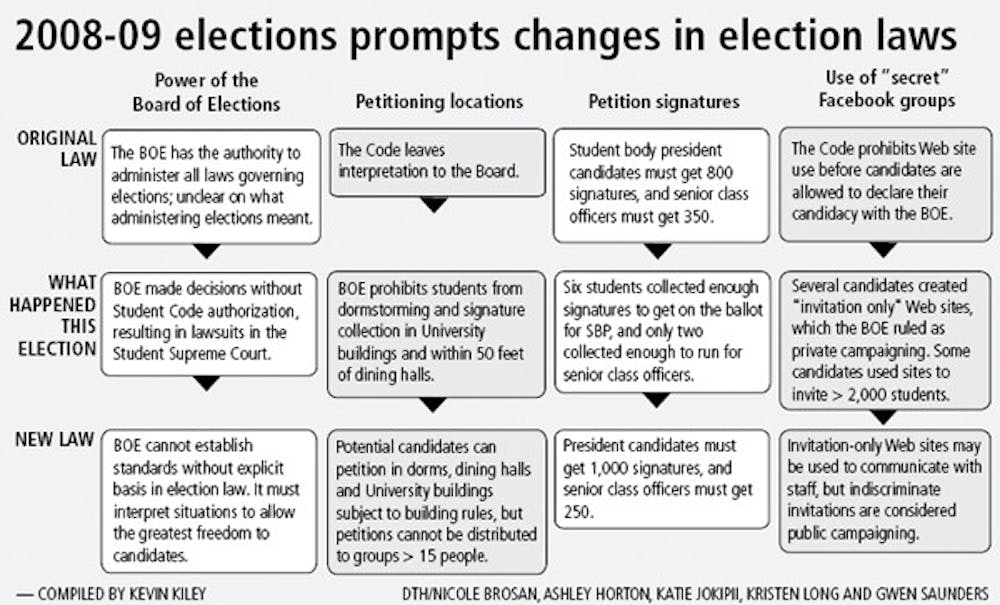Student elections are over but the election law battle rages on.
In response to several controversies this year about Board of Elections decisions Student Congress has passed two bills that could radically alter election procedure for the coming years.
But current elections board members warn that these changes might swing the pendulum too far and unfairly limit the board's power.
One bill passed Tuesday with barely enough Congress members in attendance to hold a meeting" narrows the board's ability to interpret laws on a case-by-case basis.
The bill states that ""candidates retain the right to all actions not explicitly prohibited or reasonably prohibited by the spirit of a standard provided for by election law.""
But this could mean that any action would be allowed unless explicitly outlawed" said Val Tenyotkin" vice chairman of the elections board. He said the board would lose its power to interpret law in response to ever-changing campaign methods.
""We will have mayhem" basically" he said. We will be strangled.""
The bill's intent" its sponsors said" is to free campaigns from unneeded regulation.
""The bill is really to ensure that the BOE is a little more predictable in their decisions" and their regulations more consistent" Congress member Jason Sutton said in an e-mail. He added that it should allow candidates the freedom to act creatively and in innovative ways.""
Student Congress also passed a bill Jan. 22 that clarifies how the Board of Elections must regulate private campaign meetings and the use of campaign Facebook groups.
The bills followed a series of incidents that brought into question the extent to which the board was free to interpret current law.
Former student body president candidate Ashley Klein sued the board last semester after being fined based on the Board of Elections' interpretation of what is public and private campaigning.
Her meeting in the Campus Y was ruled public by the board" but the Court ruled it was private based on its interpretation of the same part of the Student Code.
The decision also stated that the elections board has the power to interpret the Code — rankling some Congress members.
Last Tuesday's bill also increases the number of petition signatures required for student body president candidates from 800 to 1000 and lowers the number for senior class officers and Residence Hall Association president from 350 to 250.
Tenyotkin said students would suffer because of increased advertising by the candidates.
It is still yet to be seen what effect the changes to election law will have" but Tenyotkin said that discussions about election law happen every year between the board and Congress to incorporate lessons learned.
""Every year it's a tradition" Tenyotkin said. We find things that could be clearer" and we introduce a bill to that effect.""
Contact the University Editor at udesk@unc.edu.
Bills would alter election law



